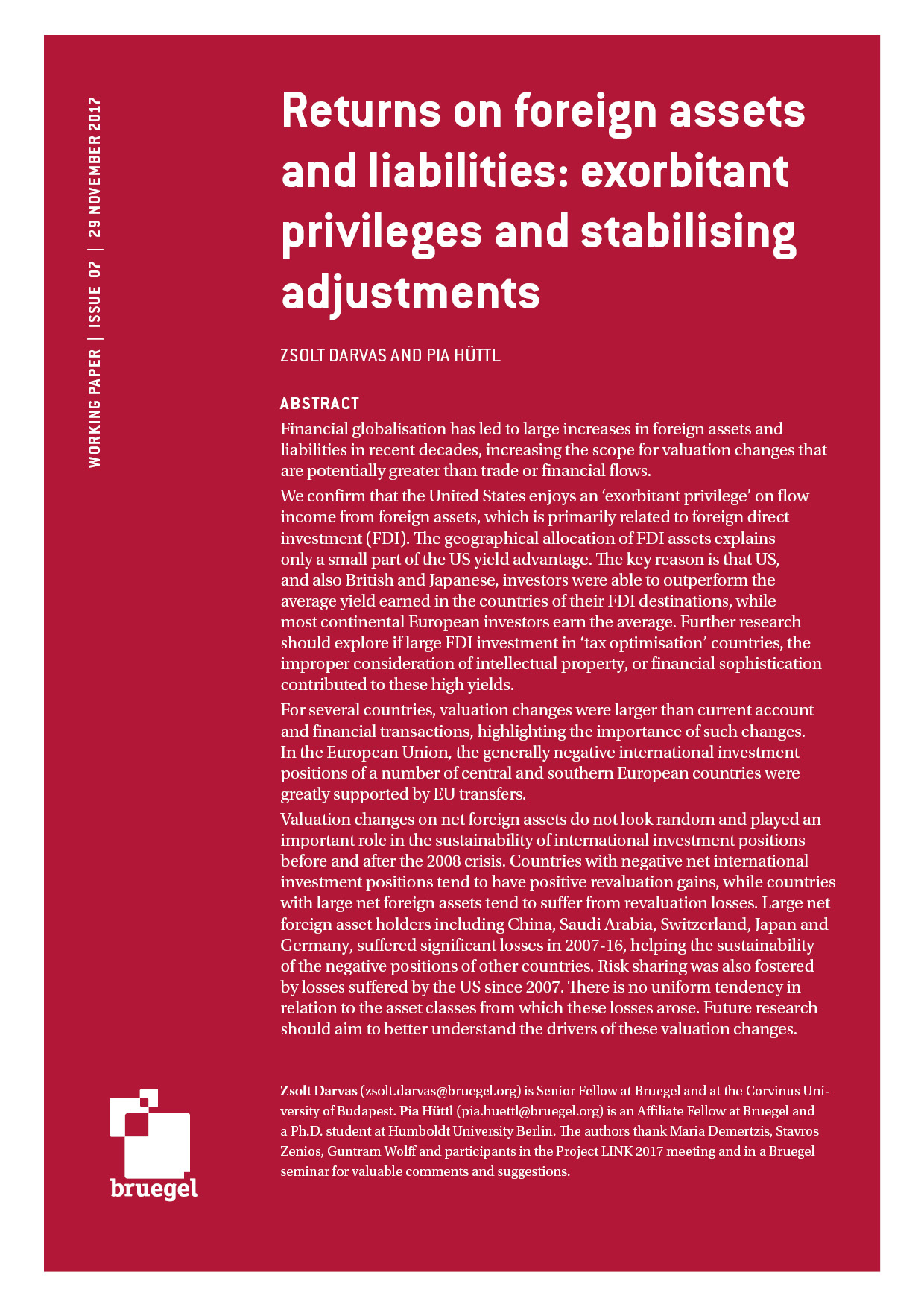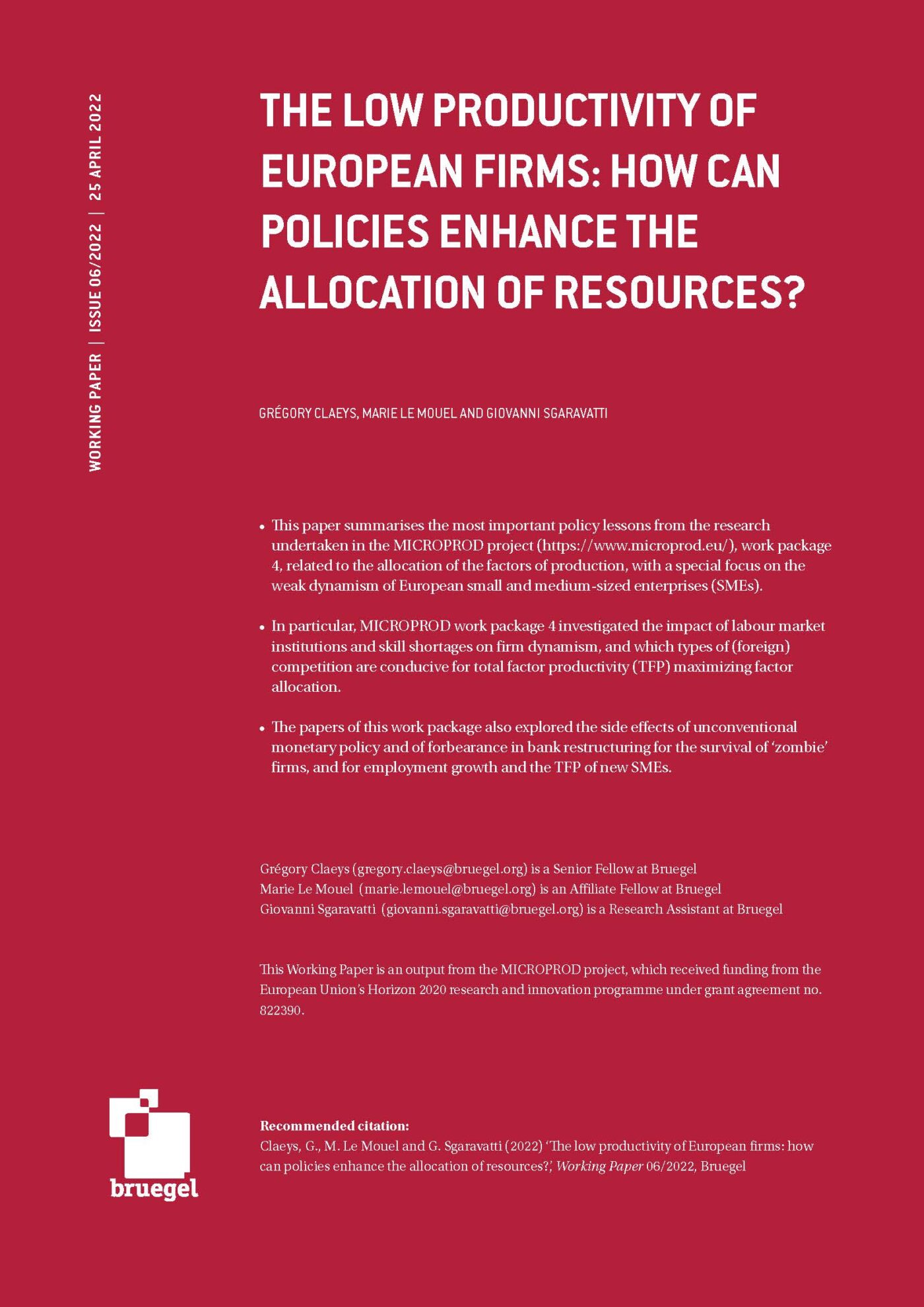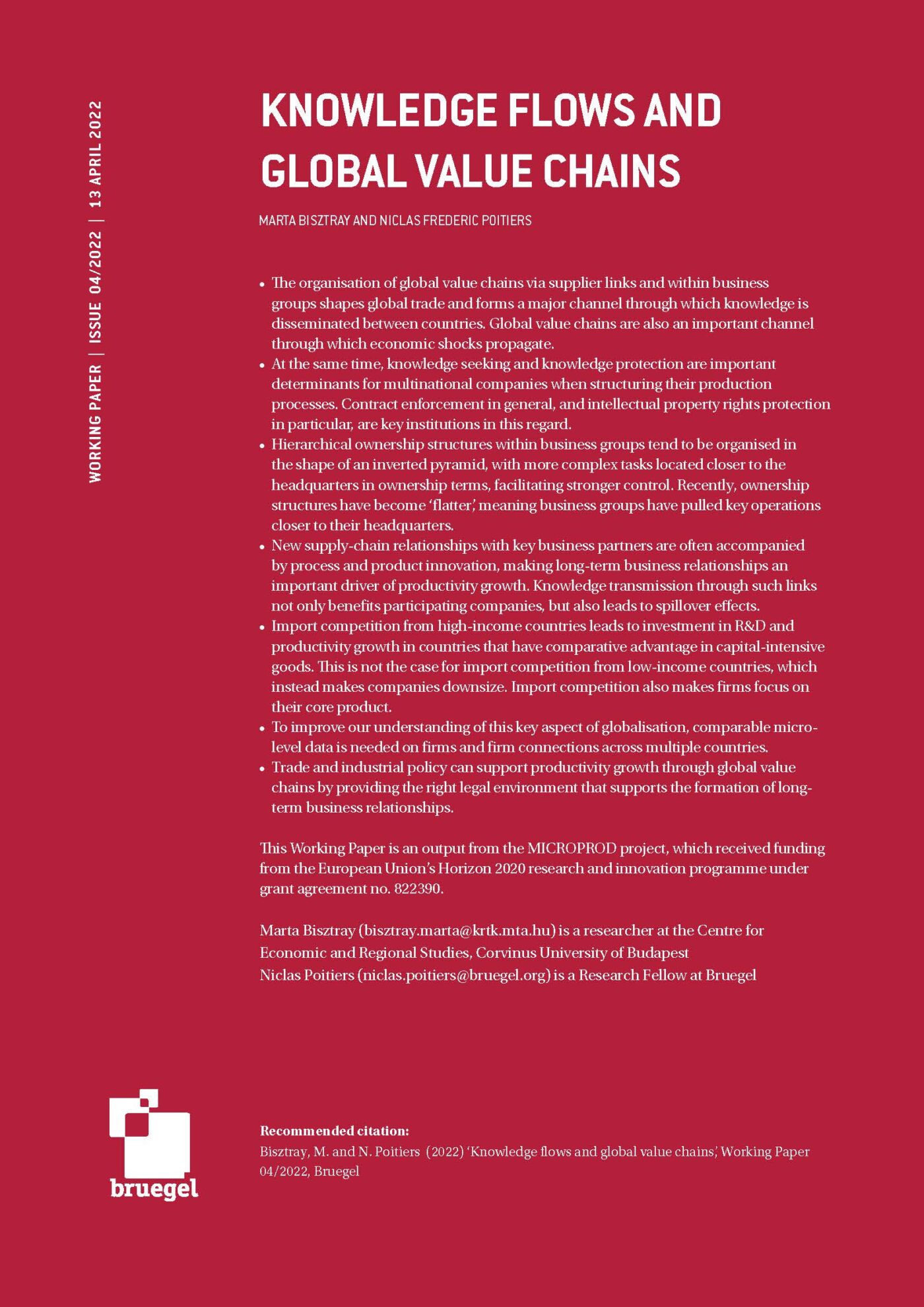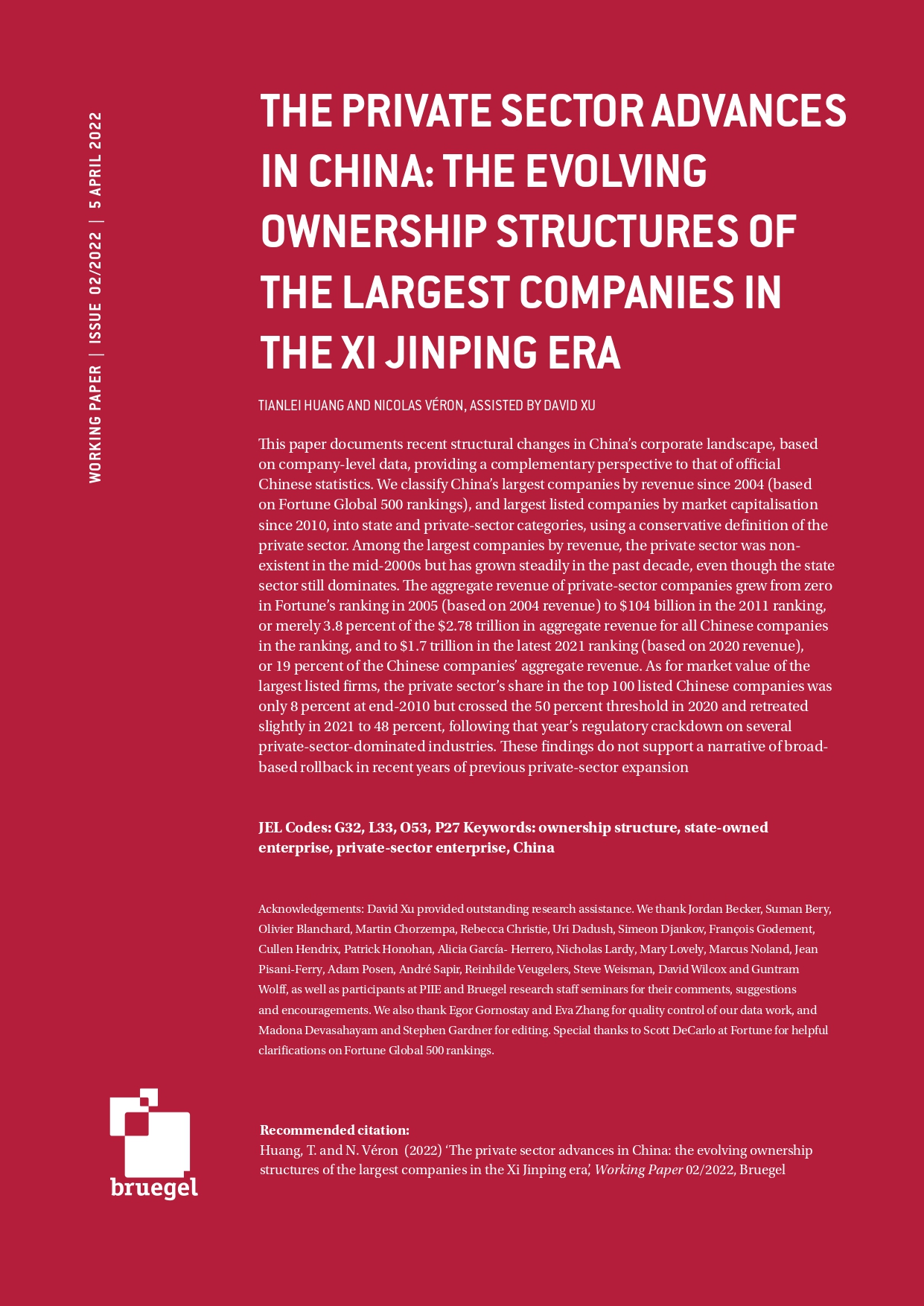Working Paper
Returns on foreign assets and liabilities: exorbitant privileges and stabilising adjustments
Large stock of foreign assets and liabilities could foster international risk diversification. US, British and Japanese investors earn high yields on FDI assets, which might also relate to tax, intellectual property and financial sophistication issues. Valuation changes on net foreign assets had a stabilising impact.
Financial globalisation has led to large increases in foreign assets and liabilities in recent decades, increasing the scope for valuation changes that are potentially greater than trade or financial flows.
We confirm that the United States enjoys an ‘exorbitant privilege’ on flow income from foreign assets, which is primarily related to foreign direct investment (FDI). The geographical allocation of FDI assets explains only a small part of the US yield advantage. The key reason is that US, and also British and Japanese, investors were able to outperform the average yield earned in the countries of their FDI destinations, while most continental European investors earn the average. Further research should explore if large FDI investment in ‘tax optimisation’ countries, the improper consideration of intellectual property, or financial sophistication contributed to these high yields.
For several countries, valuation changes were larger than current account and financial transactions, highlighting the importance of such changes. In the European Union, the generally negative international investment positions of a number of central and southern European countries were greatly supported by EU transfers.
Valuation changes on net foreign assets do not look random and played an important role in the sustainability of international investment positions before and after the 2008 crisis. Countries with negative net international investment positions tend to have positive revaluation gains, while countries with large net foreign assets tend to suffer from revaluation losses. Large net foreign asset holders including China, Saudi Arabia, Switzerland, Japan and Germany, suffered significant losses in 2007-16, helping the sustainability of the negative positions of other countries. Risk sharing was also fostered by losses suffered by the US since 2007. There is no uniform tendency in relation to the asset classes from which these losses arose. Future research should aim to better understand the drivers of these valuation changes.












